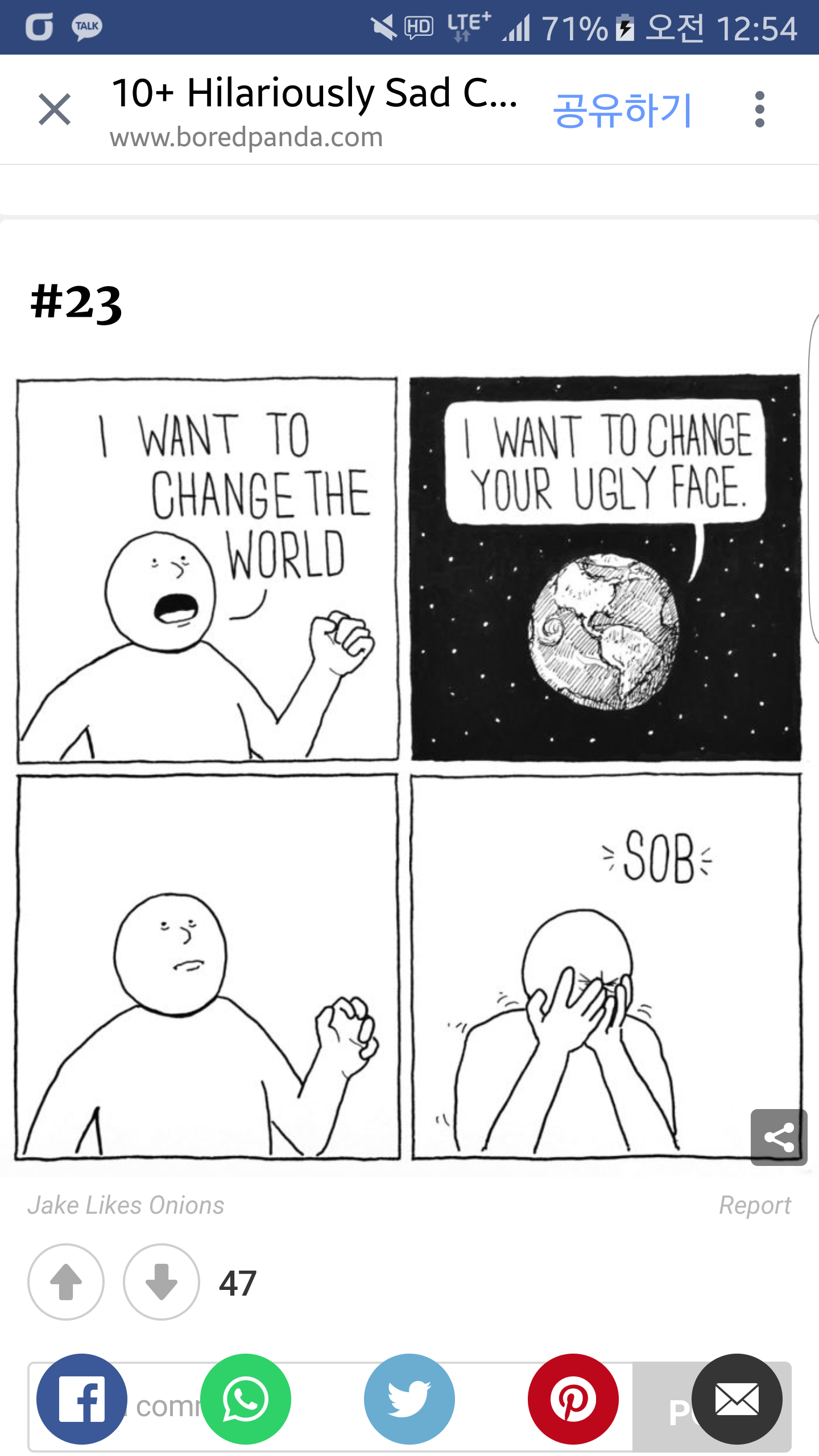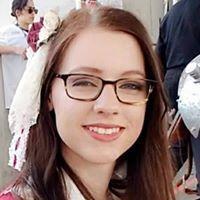-
Posts
778 -
Joined
-
Last visited
-
Days Won
1
Reputation Activity
-
 DBear got a reaction from LizKay in What exactly is a "strong LOR"?
DBear got a reaction from LizKay in What exactly is a "strong LOR"?
I've noticed in many posts regarding applicant profiles that state that one has X number of "strong" letters of recommendation lined up. How are people so sure of this?
Just out of curiosity, I wonder how people assess the strength of a letter of recommendation. For the most part, professors don't seem to always show students the letters they have written, at least in my own experience and from what I've gathered in my school.
If one doesn't know what's actually written (or will be written) in a letter, then is a "strong" LOR referring to one written by a prominent scholar? Or is it based on the assumption that the letter writer will most likely write a persuasive letter?
Just a matter of curiosity as "strong" LoR (or even SoP for that matter) is quite subjective and personally, I feel like even if the letter writer is quite well-known in the relevant field, if they cannot directly attest to an applicants capabilities with evidence to back up their claim, it wouldn't be a strong letter.
-
 DBear got a reaction from Ladymeg in Advice on Comm Programs
DBear got a reaction from Ladymeg in Advice on Comm Programs
Hey! I really love those topics -
I know what it feels like coming from a different field - The best advice I got was to look for journal articles in my topic of interest that really resonated with me - then look at who wrote them and where the teach/ where they were trained. Similarly, if you can find a journal that seems to publish lots of articles that interest you, look at the the people on the editorial board. If you're currently enrolled in school, your school library should give you access to a lot of journals for free, if not, you can plug in your interests in Google Scholar and see what that gets you.
Honestly, this method got me a few names, but I didn't want to miss out on anything so I started with the phds.org list of Communication programs and just looked at EVERY single school. In the process, I did see a few faculty that did geek culture and stuff - The rankings on phds.org may not be so insightful, but I used that because the list of schools on NCA was too long and I just need a manageable sample to start with.
Another thing that helped me around late November was looking at the schools everyone here was applying to or talking about. I think if you start your search with too many specific criteria, you may end up not finding anything so I'd suggest casting a wider net at this point and working your way down. I feel like UC San Diego would probably suit your interests along with U Colorado - Boulder.
Also, what I did that helped me a lot was making a list of schools that did NOT interest me. I found that I ended up looking at the same website multiple times in some cases (especially for well-known schools) because I forgot that I already looked and decided against them.
-
 DBear got a reaction from Garcia_2020 in Someone is reading my application right now
DBear got a reaction from Garcia_2020 in Someone is reading my application right now
You and I must have some sort of psychic connection - that's pretty much the image I've had in my head.
Sometimes, the scene is a meeting room with a handful of bored looking professors all looking at applications together and chit-chatting and invariably, one professor says
"I don't know what kids these days are thinking, what is this? a diary entry? and you call this a GPA??" and there goes my application, into the wastepaper bin, waiting for the cleaning staff to take it to the recycling bin.
-
 DBear reacted to phdthoughts in 2018 Applications Thread
DBear reacted to phdthoughts in 2018 Applications Thread
I'll see some of you at Purdue's welcome weekend next month!
-
 DBear got a reaction from E-P in Any Older (30+) applicants out there
DBear got a reaction from E-P in Any Older (30+) applicants out there
There are so many of us! YAY!
I'm 35+, just finished my second MA and my first round (and hopefully my last) of applications for PhD programs... I worked for a bit before getting my first MA in policy thinking I wanted to work for the UN or such. After working in policy for a while, I was better able to picture my career trajectory and visualize what my day to day would be should I continue down that path. I didn't like what I saw and decided that I'd return to school and do a second MA. I'm like a decade or more older than everyone in my MA cohort and I have friends from undergrad who are already getting tenure-track positions. The friends I have who stayed in the corporate world are pretty senior now and making lots of money. Then there are the friends who decided to be stay at home moms. It's a bit nerve-wracking to be starting something completely new at this age, I'm sure a lot of you can sympathize with that. For me though, the thing that worries me the most is that I've never stayed in one job for more than 2.5 years. Undergrad was the only time in my life that I was part of one institution for more than 3 years and even then, I took a year off before my last semester. So there's a part of me that's not so confident that I can stick with one thing for 5+ years. In a sense, I feel like I've painted myself into a corner and will be forced to complete my phd asap because of my age, so that's the bright side.
Also, when I saw a friend freak out and obsess about admissions this time last year (losing sleep etc), I thought she was being young and silly. I thought that she'd led a cushy life up until now and didn't know what really warranted freaking out. Now I feel bad for being so judgmental since I'm totally obsessing! I thought I'd be used to applying for something and waiting for the results since this isn't my first rodeo- but this is so different from applying for jobs in the corporate world... At least with that, they usually get back to you quickly or give you some sort of time frame for when they'll get back to you. With my MA applications the second time around, I went to school in Seoul, Korea, where it it standard for schools to have an announcement date set in stone so you can kind of forget about it until that particular day. With the programs I'm applying to, it's not even clear whether or not I will be interviewed as schools all have different policies.
In a sense I'm lucky that I don't have to worry about kids or a spouse, but my parents aren't getting any younger and I worry about their health since they'll be at least a 15 hr flight away if I get into school this time around.
I know a lot of younger students who are still really unsure about themselves, their careers and futures. Not that being 30+ magically results in any sort of certainty, I do feel like older students who have to juggle families, give up big salaries, or just face the uncertainty of starting all over again only do so if they really are dedicated to the path. So I definitely think we have that going for us! Best of luck!!
-
 DBear reacted to jltomato in Help ranking programs by competitiveness
DBear reacted to jltomato in Help ranking programs by competitiveness
Just a heads up, UW-Madison Comm Arts designates by slots, but UW-Madison SJMC does not A majority of our recent cohorts have been Pol Comm oriented (at least, within the past three years), specifically in the deliberative democracy/contentious politics/cmc area.
-
 DBear got a reaction from jltomato in Applying to a Communication Studies Ph.D. program
DBear got a reaction from jltomato in Applying to a Communication Studies Ph.D. program
FIRST - You as an applicant
1. What did you study in undergrad? Master's (if applicable)? Undergrad: Dual BA in Political Science/ Diplomacy & English Lang/ Lit, MA International Environmental Policy, MA English Lit
2. What were your grades like in undergrad? Master's? UG - 3.37, MA (policy) 3.7 something, MA (Eng) 3.92
3. What are your research interests? Through my undergrad and first MA, I just took courses based on how many units I needed to graduate. I spent my second MA figuring out what my research interests are - finally came up with rhetorical construction of identity for particular diaspora - keywords would be globalization, mobility, diaspora, identity construction, citizenship, subjectivity
4. What teaching experience did you have before applying? Other than teaching at a private, Kaplan-type institute? None
5. What about research experience? In the scholarly sense, none. Only my MA thesis.
6. What about miscellaneous experience (unrelated to Comm/corporate/private/etc)? 2.5 years in finance, MA in policy, 2 yrs in int'l aid gov't agency, 3+ years sustainability consultant (private +int'l org) various internships etc.
7. How old are you (or, what is your age group)? 36
SECOND - Deciding to pursue a Ph.D.
1. What made you decide to pursue a Ph.D. in Communication? I wanted to do a PhD - thought I wanted to do it in Lit, but there something that just didn't click. One of my professors suggested I look into Rhetoric programs so started with Rhet Comp in English then found that there was Rhet in Communication. For the first time since I'd started the process of looking for programs, I finally found professors and department descriptions that I was really excited about and it looked interdisciplinary for the most part - based on the info in the above section - I was looking for a program that would allow me to bring in things from my random combination of experiences.
2. Did you contact faculty at the programs you were interested in? After I created my shortlist, I contacted a professor from each program. In a couple of cases, I contacted the DGS, but mostly contacted the professor whom I'd most want to work with. I basically said "Hi, I'm a prospective student interested in studying ABC, and contacted you because your article/profile/book on XYZ seemed to be closely aligned with my interests. My background is QRS, do you think I'd be a fit?" I got mostly positive responses, 2 professors ignored my mail. For the most part, the professors would give me a bit of information on what they were looking for so I'd thank them in my reply and that'd be it. One professor was super helpful and put me in touch with other students and we got to the point of email banter (I later was accepted to this program). In general though, the correspondence was Cold Email - POI response - Thank you, THE END
3. Did you visit or contact graduate students? I didn't visit since I was not in the country. I contacted one current student who was introduced to me by a POI (see above response) and she was helpful and welcoming. I was put in touch with an alum from one of the programs I applied to through a mutual friend, and she was friendly, but the more I thought about her response, it didn't seem that great a program.
4. How did you decide who to ask for letters of rec? One of the main reasons for getting my second MA was because I had no letter writers. I only was in touch with one professor from undergrad, and I didn't think 2 non-academic letters would be good for my application. Letter writer 1: My thesis advisor, also alumnus of one of the schools I applied to (though not the same program). Letter writer 2: Professor from my thesis committee and also worked with him for 3 semesters as a TA. Letter writer 3: Professor I had taken 3 classes with in undergrad and one in grad - chose him hoping he could piece together my random background. Letter writer 4: 3rd professor from my thesis committee, asked for 1 letter from him because one of the schools didn't have an online LOR system and one of my letter writers is notorious for being late and hard to track down, so didn't want to have him take the extra step of mailing something or printing it out. All of my letter writers were NOT Comm - but faculty in the English Dept
THIRD - Actually applying
1. How did you look for programs? I looked at phds.org as there was a list of 100 schools, looked at every one of them. Also looked at every school on the NCA ranking. Also looked at schools I had heard of (Notre Dame, for example) to see if they had a comm program. Looked at the authors for some of the books and articles I liked. Emailed a prominent professor in cultural studies (whom I happened to know through a school thing) and asked for suggestions.
2. How did you decide where to apply? Would look at the description first (if it said it was stats heavy, then deleted), then looked at faculty. Looked at EVERY one of the faculty members. If there was one that I REALLY wanted to work with, or 3 that I'd be happy to work with, the school got on my "Yes" list. I made a "No" list with notes on why I didn't like the school so I could keep track. Iffy programs went on the maybe list.
3. What was your biggest priority in a program? Faculty fit - I wanted to apply only if there were 3 or more professors whose work I liked. I didn't read all the articles, but mostly skimmed the titles and looked at a few articles.
4. How many schools did you initially set out to apply to, and how many did you actually apply to? 10 -> 7
5. What were your GRE scores like (either specifics or vaguely)? How many times did you take it? Did you feel good about your scores? I signed up for the test, didn't feel like taking it, paid 50 bucks to reschedule, still missed the test. That was my first attempt. A year later, tried again - got 163 v, 143 q, 5 awa. I was nervous about the q as one of my programs was more social science-leaning. Retook it a 3rd time got 165 v, 149 q, 4.5 awa. Had no idea what to think about the scores so joined gradcafe.
6. How did you frame your experience/interests/fit in your statement of purpose? Did you focus on something more heavily than other stuff (like faculty or experience)? I started with my personal experience -> past research (MA thesis) -> what I want to study -> thus, you guys are the perfect program for me since you do just that -> More details about what I want to study in the future, XYZ -> I want to work with professor A because she studies X, Professor B because he studies Y..... etc -> I also like program's structure, student activities etc, and I can contribute because I was a TA etc. I made one SOP which was a little less than 1000 words. I think I had a page (double spaced) each for past, future, school specific stuff.
7. Did you feel good about your applications? Why or why not? I feel good because I really did do everything I can. I had 10 people look at my SOP, got 2 people to read my writing sample (which was a section of my thesis that had already be evaluated by many different people) and really did I everything in my power (which wasn't all that much) to find out what I could about programs. I wanted to focus on fit more than anything else at the application stage and I did. My biggest concern about the possibility of having to apply again was what I could fix. I feel like I really told the story I wanted to tell in my SOP, and my writing sample wasn't going change drastically, couldn't change my GPA, and didn't think my GRE was going to get any better and I was pretty confident I had found good fits.. Other than maybe getting an article published, I had no clue what I could change. Not saying my application was perfect, but I really did everything I knew to do.
8. If you knew then what you knew now, what advice would you give yourself? Don't freak out & look at more programs hahaha.. I found a few after the fact that I would have liked to apply to.
FOURTH - GETTING IN (OR NOT) - feel free to update/answer later
1. How many programs did you get into (and which, if you don't mind sharing)? 4 : U Wisconsin Madison, Ohio U, Bowling Green State U, Temple U
2. How many were you waitlisted for? Did you make it off the waitlist? 1: U Iowa (dunno what's going to happen with that)
3. How many were you rejected from? 1: U Penn
* there's still one program I'm waiting to hear back from
4. Did you get into your top program? Did you expect to get in? Yes - I did get in, and I had NO clue I would
5. Did you receive funding? Yes
6. Once you've made your decision...how did you decide which school to attend?
7. If you didn't get admitted to a program, will you apply again?
8. What do you want to do with your Ph.D.? Professor
FINALLY
1. In retrospect...what was the best part of the application process? @heyDW is this a trick question? the whole thing was crappy lol. I liked my master spreadsheet!
2. What was the worst? Deciding
3. What advice do you have for future applicants? Look for fit!
-
 DBear reacted to phdthoughts in 2018 Applications Thread
DBear reacted to phdthoughts in 2018 Applications Thread
Fine tuning SOPs at the moment - aiming to have everything sent off and done by this weekend. Eeek!
-
 DBear got a reaction from GreenEyedTrombonist in Applying when your background is not communications
DBear got a reaction from GreenEyedTrombonist in Applying when your background is not communications
A LOT of programs are interdisciplinary by nature so coming from a non-Comm background isn't a big deal for a lot of places. I applied last year with degrees in policy and English and am in my first semester now. Of my cohort, I think one out of the half dozen or so of us has a degree directly related to our subfield.
I contacted professors I was interesting in working with and did what @GreenEyedTrombonist said. Told them about my interests and background and asked if I'd be a good fit. Not one person said my non-Comm degree was an issue.
Good luck!
-
 DBear got a reaction from Adelaide9216 in Applying when your background is not communications
DBear got a reaction from Adelaide9216 in Applying when your background is not communications
A LOT of programs are interdisciplinary by nature so coming from a non-Comm background isn't a big deal for a lot of places. I applied last year with degrees in policy and English and am in my first semester now. Of my cohort, I think one out of the half dozen or so of us has a degree directly related to our subfield.
I contacted professors I was interesting in working with and did what @GreenEyedTrombonist said. Told them about my interests and background and asked if I'd be a good fit. Not one person said my non-Comm degree was an issue.
Good luck!
-
 DBear reacted to phdthoughts in 2018 Applications Thread
DBear reacted to phdthoughts in 2018 Applications Thread
Sounds like you have a great start! I received really encouraging email from one of my schools on Friday, so I've been super motivated this weekend to do GRE and SOP tasks - kind of reaffirmed I'm on the right path. It's funny how sometimes that's all you need to keep going!
-
 DBear reacted to Pencilvester in Help ranking programs by competitiveness
DBear reacted to Pencilvester in Help ranking programs by competitiveness
@GreenEyedTrombonist (Nice I got it) I just looked more closely at the CVs of the professors I identified as possible research matches and realized that I couldn't make as good a case for fit as I initially thought. My criterion has been to apply to programs where two or more faculty members study similar enough stuff and at both programs there was less than 1 who did (as in, even the one person in each department who studied similar stuff would've been a bit of a stretch).
How have you been going about your search?/How did you pare down your list?
-
 DBear reacted to GreenEyedTrombonist in Help ranking programs by competitiveness
DBear reacted to GreenEyedTrombonist in Help ranking programs by competitiveness
Hola!
I'm actually looking at many of the same schools (U Penn, Penn State, and Madison, now that I've reduced my list) because I am intending to conduct research in the same general area (online political communication). I'm also coming from a social science background and have reached out to several of these Comm programs about goodness of fit given my different background. I made sure to explicitly state my research interests and my concerns given my different background when reaching out. All the schools who have responded so far (4 comm programs at the moment) have responded positively and given me additional information to help me judge my fit to the program. Although some schools are going to be more competitive due to the number of applications they receive (some receive 100 applications while other will receive 400 for a given cycle) the ultimate deciding factor is how well you seem to fit in the program and how well you come across as a competent researcher/asset to the department.
Is there a reason you are worried about competitiveness other than coming from a different background? Many Comm programs are interdisciplinary in nature and actually specifically mention wanting people from social science backgrounds (Washington State, for instance, does not require additional coursework from those with a degree in social science).
For reference, the schools that have gotten back to me so far aren't on your current list, but they are Washington State, University of Oregon, Boston University, and Temple. Penn State sent me a robo-email letting me know they got my question and to allow a couple weeks for a response and I know UW Madison hasn't started yet so I'm being patient on that front (also, one of my friends, whom I met through this forum, goes there). The only other comm program I'm waiting to hear back from is NYU, but at this point I've got time.
-
 DBear got a reaction from GreenEyedTrombonist in Help ranking programs by competitiveness
DBear got a reaction from GreenEyedTrombonist in Help ranking programs by competitiveness
@Pencilvester I was brand new to the field when I applied last year so I don't know about rankings. Like @gradswag has stated, it really is specific to the subfield. The NCA rankings are quite old but still a useful place to start. The NCA also has a list of "hot" new publications, looking at where those authors teach may help.
In terms of "slots" by subfield, there are some schools that do something like that (UW Madison, for example) but not all do. I know what it's like applying from another field and worrying about whether I was aiming waaaaay too high or not high enough etc. But I'd still say it's best to really look at which schools best fit your research interests and talking with potential advisors/ DGS. Communications is a pretty Midwest heavy discipline so you may miss out on really good programs if you focus only on schools that are generally "good schools."
-
 DBear reacted to GreenEyedTrombonist in 2018 Applications Thread
DBear reacted to GreenEyedTrombonist in 2018 Applications Thread
@DBear Definitely think I've entered the nervous stage. I did a big long "what can I improve" post over on the anthro side, haha.
-
 DBear got a reaction from phdthoughts in 2018 Applications Thread
DBear got a reaction from phdthoughts in 2018 Applications Thread
Hi all - just wanted to say good luck!! This forum was a god send last year and wanted to say that I'm here to help
@GreenEyedTrombonist I know what you mean about how to communicate that you can do Comm even though you come from a different background. Remember I applied with 2 BAs and 2 MAs NONE of which were remotely related to Communication. That was might greatest concern in writing my SOP as well. In then end, I tried to kind of not mention it and focus on what I want to study and hope that would show that my research interests are very much in the Communication world. What you do need to show is that you have the aptitude to be a scholar in general, and now that your MA is done, it'll be easier to communicate that. This is just from my experience, others may disagree
-
 DBear got a reaction from GreenEyedTrombonist in 2018 Applications Thread
DBear got a reaction from GreenEyedTrombonist in 2018 Applications Thread
Hi all - just wanted to say good luck!! This forum was a god send last year and wanted to say that I'm here to help
@GreenEyedTrombonist I know what you mean about how to communicate that you can do Comm even though you come from a different background. Remember I applied with 2 BAs and 2 MAs NONE of which were remotely related to Communication. That was might greatest concern in writing my SOP as well. In then end, I tried to kind of not mention it and focus on what I want to study and hope that would show that my research interests are very much in the Communication world. What you do need to show is that you have the aptitude to be a scholar in general, and now that your MA is done, it'll be easier to communicate that. This is just from my experience, others may disagree
-
 DBear reacted to ejpril88 in Decision Dates
DBear reacted to ejpril88 in Decision Dates
Congrats to @DBear and @The Shade King! Madison is a great town. FYI they have the best brick oven build your own pizza ever! The place is called Lotsa, the address is 506 State Street. I visited Madison with my husband two months ago just to take a look around, since UW Madison was one of the schools I applied to.
-
 DBear reacted to heyDW in Decision Dates
DBear reacted to heyDW in Decision Dates
Accepted to the University of Minnesota's Communication Studies program. Rhetoric!
-
 DBear reacted to phdthoughts in 2018 Applications Thread
DBear reacted to phdthoughts in 2018 Applications Thread
Hi everyone. I haven't seen an applications thread for this coming cycle just yet, so I thought I'd start one. My interests are health/environmental and social interaction and culture. I applied to four schools last year and was waitlisted by Purdue and Amherst so I'm trying again with those schools and a few others. 2018 applicants, where are you all in the process and how are you feeling about this cycle?
-
 DBear reacted to CommPhD20 in Help ranking programs by competitiveness
DBear reacted to CommPhD20 in Help ranking programs by competitiveness
From what I know and a little bit of education guessing, I'd rank these programs by difficulty of admission like this:
-Penn Annenberg Communication
[big gap]
The following are all fairly similar and not put in any particular order, but all very selective:
-Cornell Communication
-Michigan Ann Arbor Communication Studies
-University of Washington Communication
-Ohio State Communication
-Wisconsin Madison Mass Communications
My impression is that Penn State is less selective than the above, but it is not uncommon for PSU admits to visit us at Ohio State and I know on at least a couple occasions they went to PSU.
-Penn State Communication
And then these two programs are not super selective, but not bad programs either. I agree with above poster to be wary of Illinois budget problems. I don't know what's up with Kansas's college funding, but I do know they can't pay their elementary school teachers.
-Kansas Communication
-University of Illinois Chicago Communication
-
 DBear reacted to michellelaura92 in Help ranking programs by competitiveness
DBear reacted to michellelaura92 in Help ranking programs by competitiveness
Also, I see that you're looking at University of Illinois Chicago. Just a quick heads up: the state of Illinois hasn't had a budget in YEARS. I just spent the last 6 years going to school (undergrad and grad) in Illinois and I cannot tell you how many times our funding was threatened. At one point last year, public universities were closing and tenured faculty members were losing their jobs. Since then, we have a facade of a budget, but nothing is guaranteed.
I just got my M.A. at Western Illinois University and things got so tight with budgetary constraints that they stopped stocking bathrooms with toilet paper, printing in my department was halted, and I was told multiple times that I may not get my stipend the following month because the university simply didn't have the money to pay their teaching assistants.
This isn't to say that the University of Illinois Chicago program is amazing or competitive. I honestly don't know much about it. I just want to warn people that the state of public education in Illinois is dire and worrisome. You have a great list of schools to consider. The best advice I could give would be to be very careful when considering public universities in Illinois until the state government gets its act together. Best of luck to you though!
-
 DBear reacted to odyssey in Help ranking programs by competitiveness
DBear reacted to odyssey in Help ranking programs by competitiveness
I agree that the NCA rankings are outdated, but there's a lot of more recent rankings based on different sets of criteria.
2010 NRC rankings, but uses 2006-2007 data: http://www.chronicle.com/article/NRC-Rankings-Overview-/124717/ Here's an explanation of the method: http://www.chronicle.com/article/An-Elaborate-Ranking-of/124633 This one's my favorite ranking. Also published in 2010, this study used network analysis to examine doctoral program reputation based on faculty-hiring patterns: http://onlinelibrary.wiley.com/doi/10.1111/j.1460-2466.2010.01487.x/full 2012 ranking based on citation: http://www.cios.org/EJCPUBLIC/022/1/022122.html 2017 CWUR ranking based on citation: http://cwur.org/2017/subjects.php#Communication Hope these help!
-
 DBear reacted to MarineBluePsy in Starting PhD...in 30s?
DBear reacted to MarineBluePsy in Starting PhD...in 30s?
I did exactly this, started my PhD in my mid-30s as a single childless woman in a cohort where most other students are about a decade younger. What helped me the most was going in knowing that my cohort or even my department wouldn't meet all of my social needs. I do sometimes socialize with my cohort because they are nice people and can actually be fun, but after spending so many hours with them each week I really don't desire to hang with them all the time outside of that. I figured being at a large public university I'd be able to connect with grad students in other departments that might be older, so I gave that a whirl. Unfortunately most of the people I came across were still either much younger or just living a completely different life being married with kids.
I then chose to take my social life completely off campus and am happy I did. I signed up for every things to do in this city list I could find, picked up all the free local papers, volunteered, and joined meetup groups to force myself to attend a few things each week whether I felt like it or not. I did things I knew I like, tried things I'd never heard of, and gave things I previously felt hohum about another shot. I wouldn't say I have close friends yet and that's ok. But I do have people that when I see them out I can hang with them and it isn't weird or we can and do text each other to exchange invites. The best part is most of the people I've met are not in school so I'm not constantly sucked into school stuff. After having been in the working world I definitely appreciate the variety in my social life and don't want to feel like I can't ever get a break from school. I also head out of town during school breaks to visit family and friends I haven't seen awhile because there is nothing like being surrounded by people who know you well.
As for dating, this too I've taken completely off campus because I just don't want that kind of drama in what I consider my workplace. Depending on the type of person (LGBT, other race/ethnicity, specific religion, etc) you wish to date there may be limited choices based on the region of the world your program is in. Also if you wish to date someone your age or older they may have assumptions about grad students that make dating harder such as you must have bad finances, you'll struggle to get a job when you graduate, your degree will take 10 years, you lack direction or something is wrong with you if you're this old and doing this, you don't have time to date, etc. I personally just mention the general industry I'm in until it seems like I may want to get to know a guy better, then he can have more specific details. Otherwise its just like dating when you work full time. Sometimes its fun and other times it really sucks lol.
-
 DBear reacted to fuzzylogician in Starting PhD...in 30s?
DBear reacted to fuzzylogician in Starting PhD...in 30s?
If students are too young for you, you might try to find events that target postdocs and junior faculty, who are more likely to be in the right age-range for you. Not all events will be open to grad students, but some social events might be.






